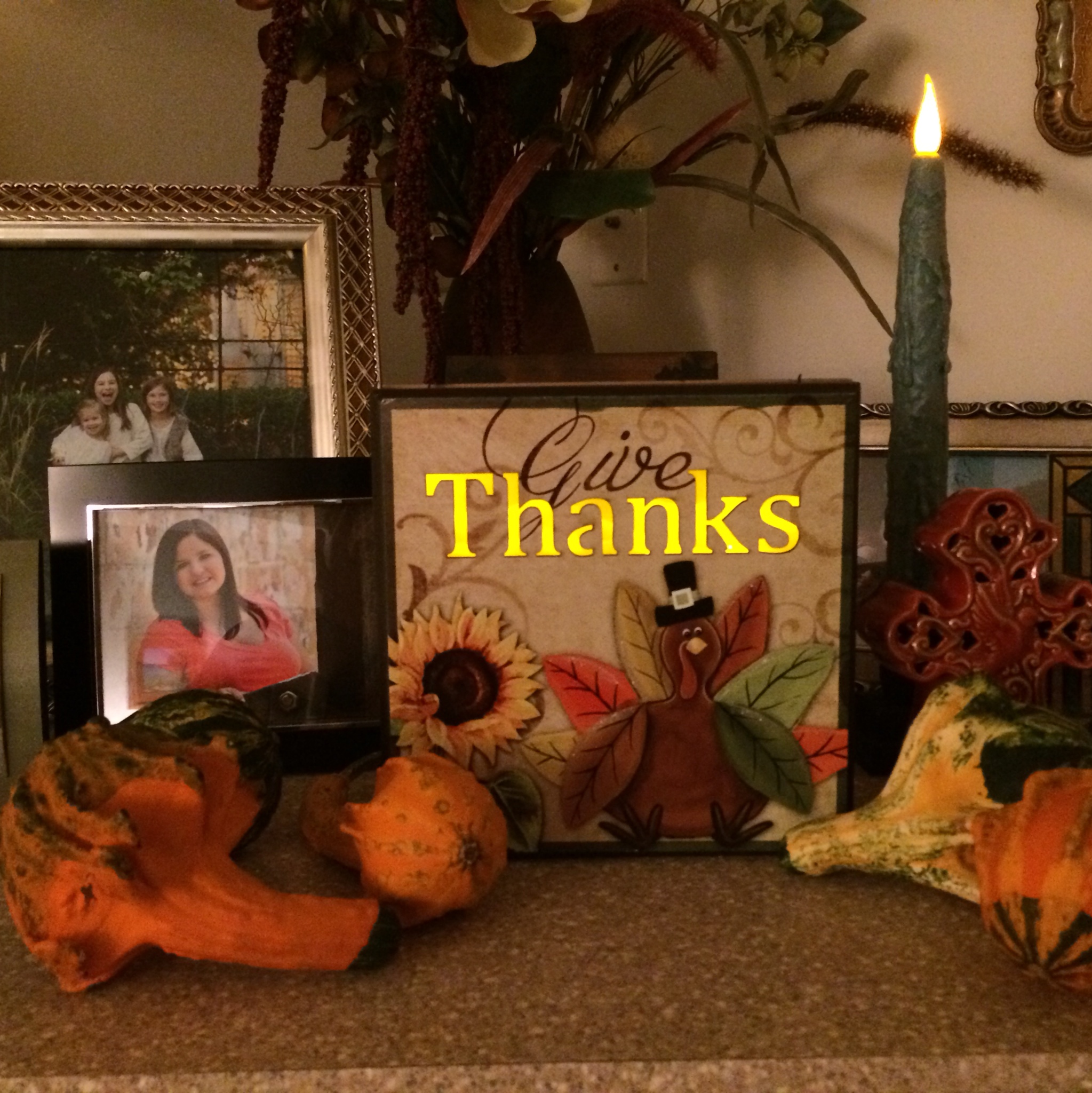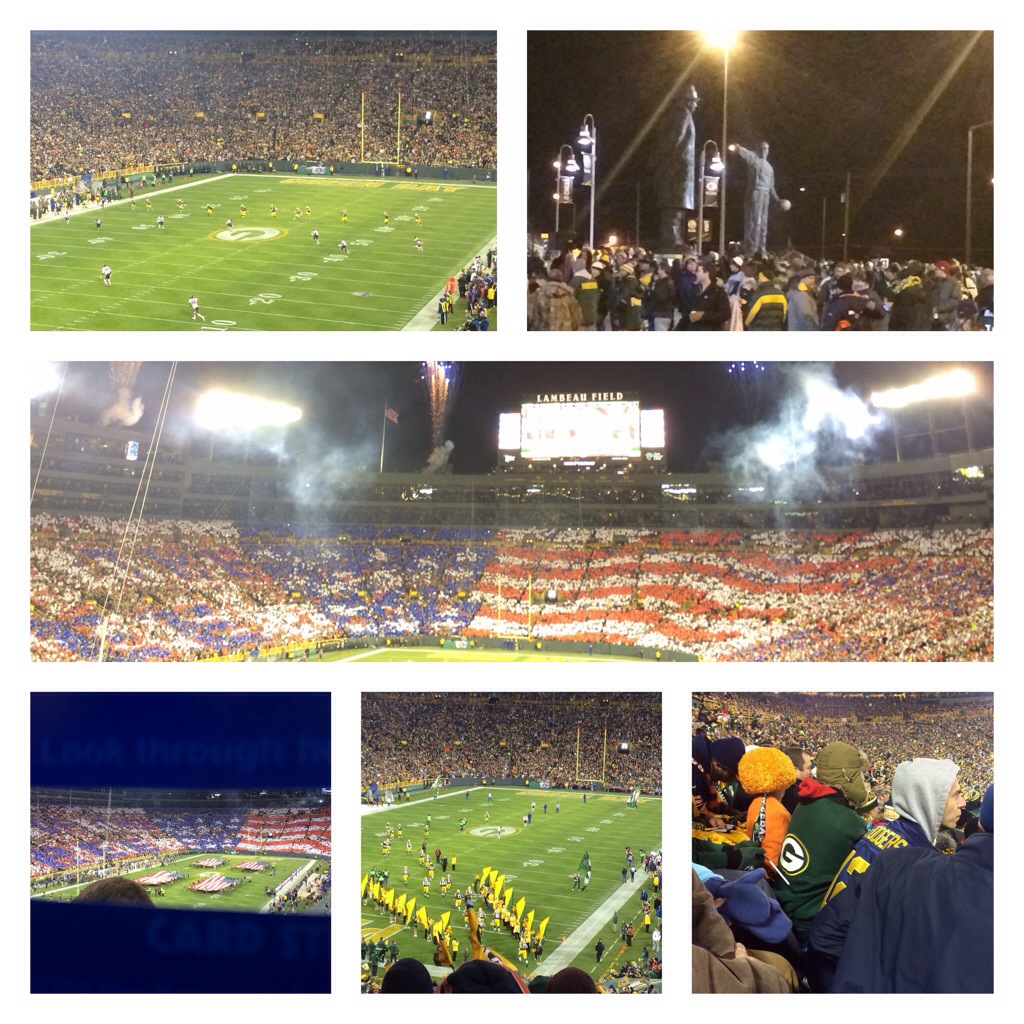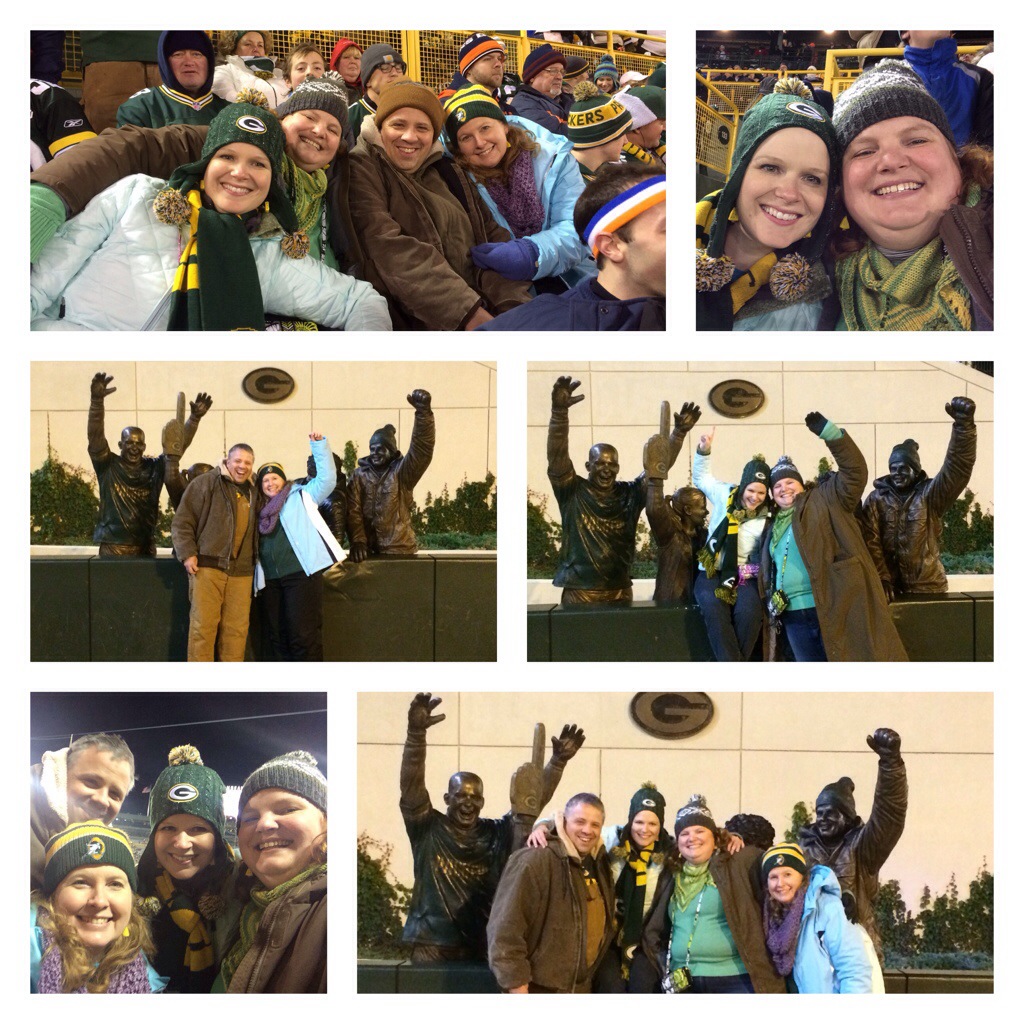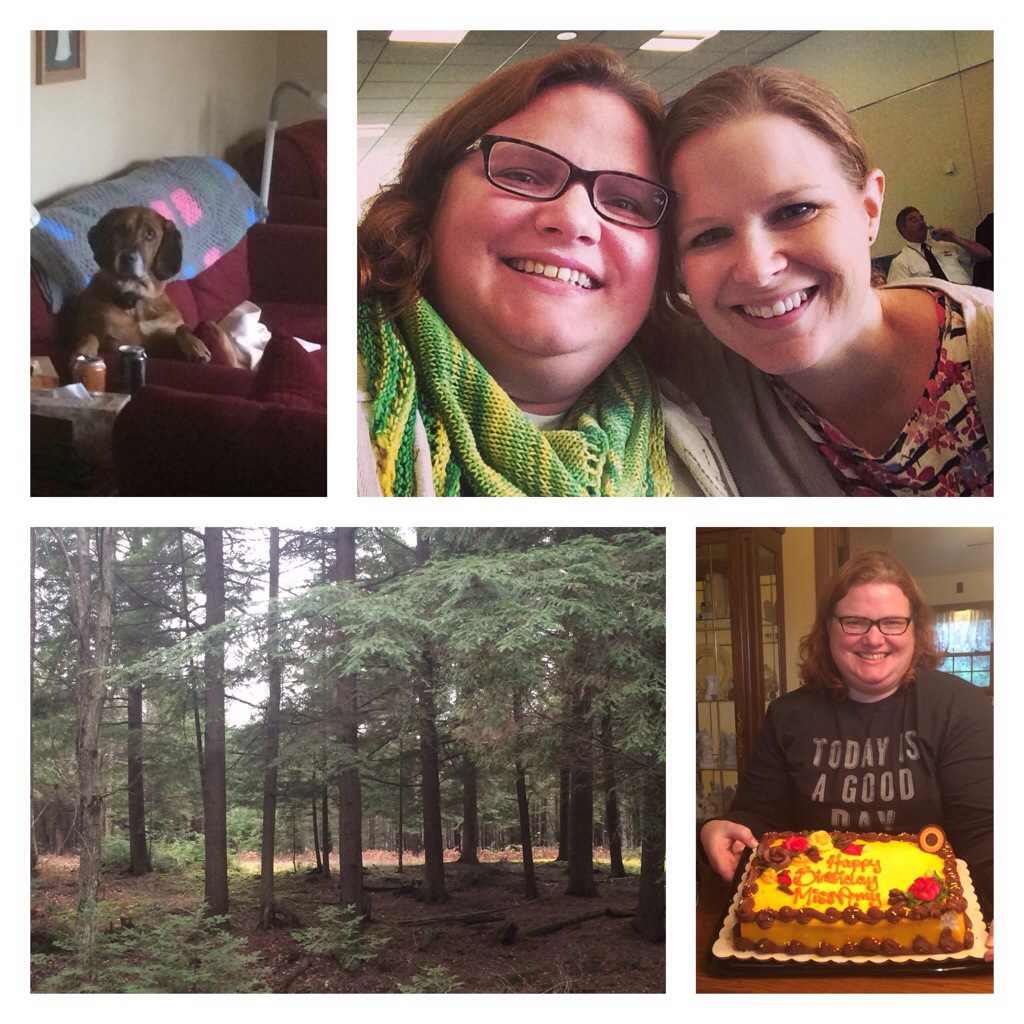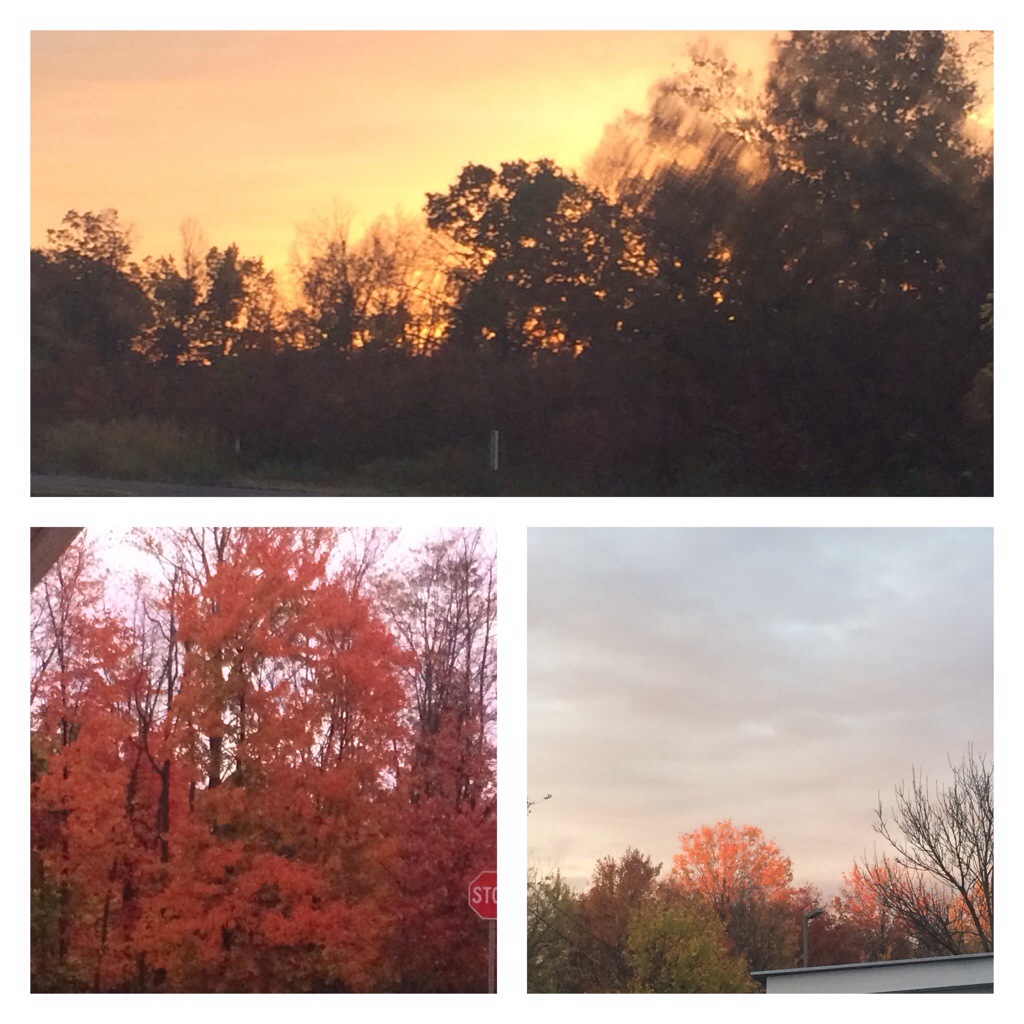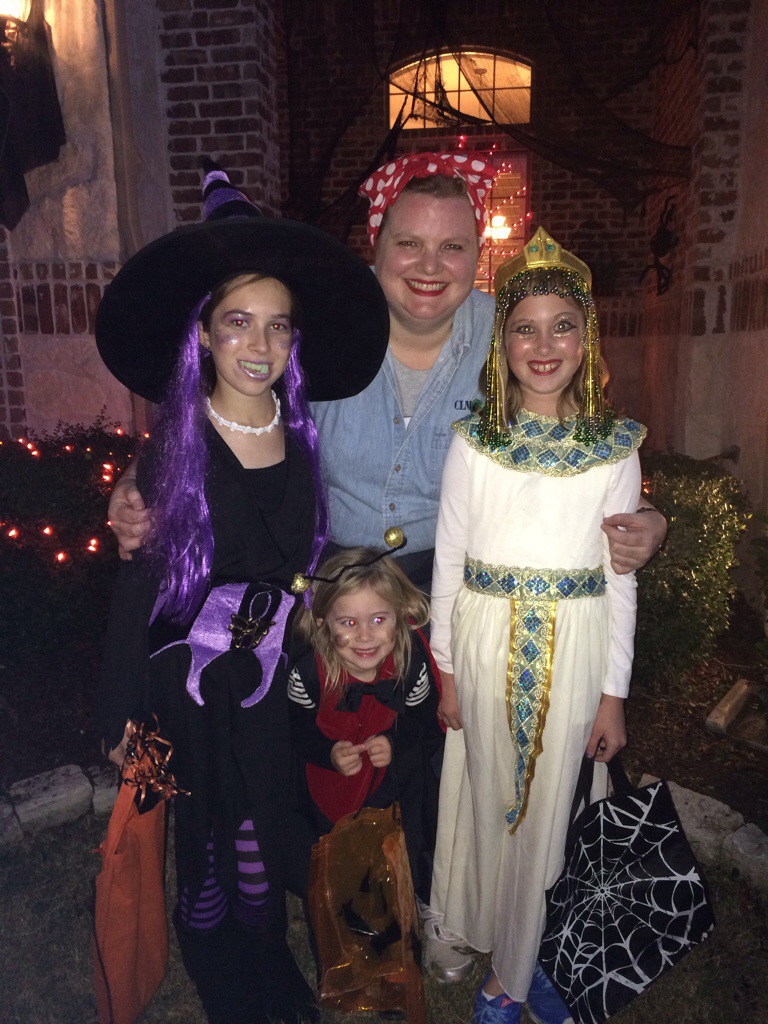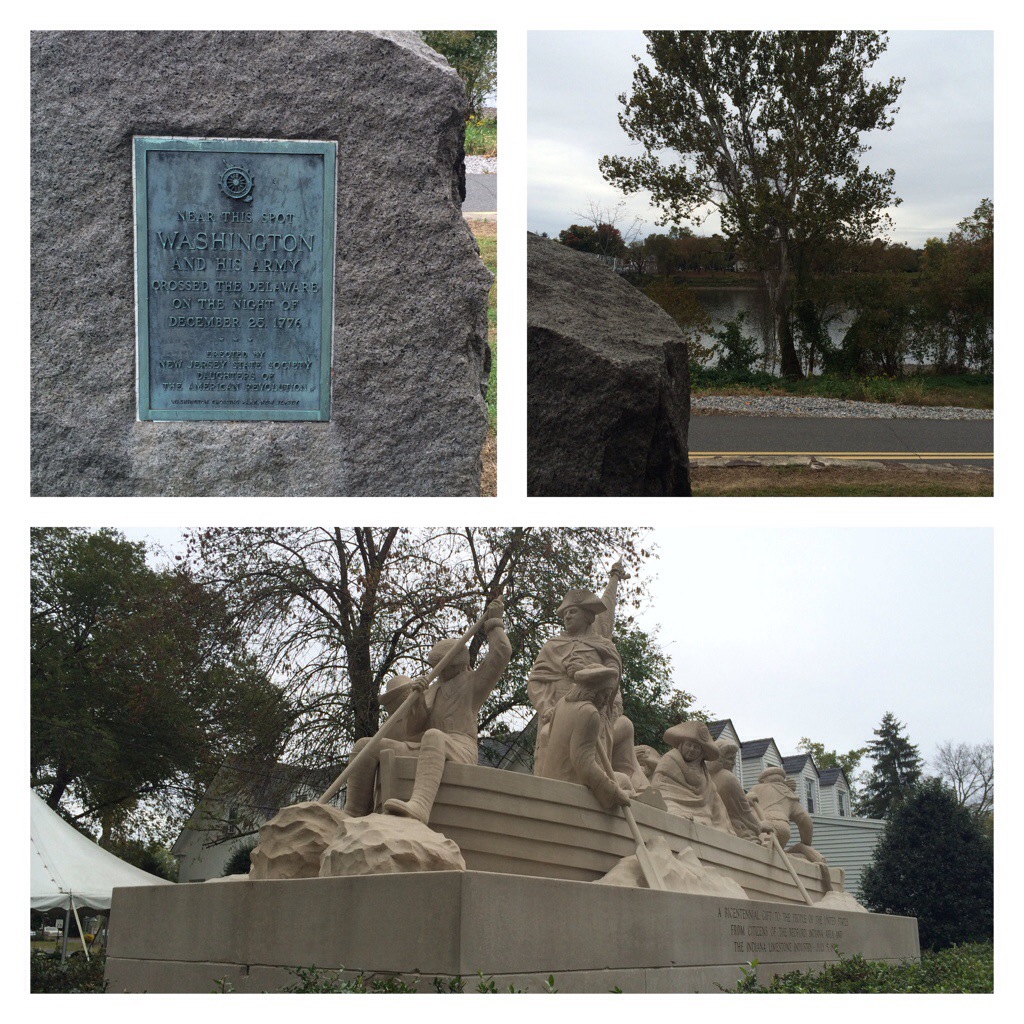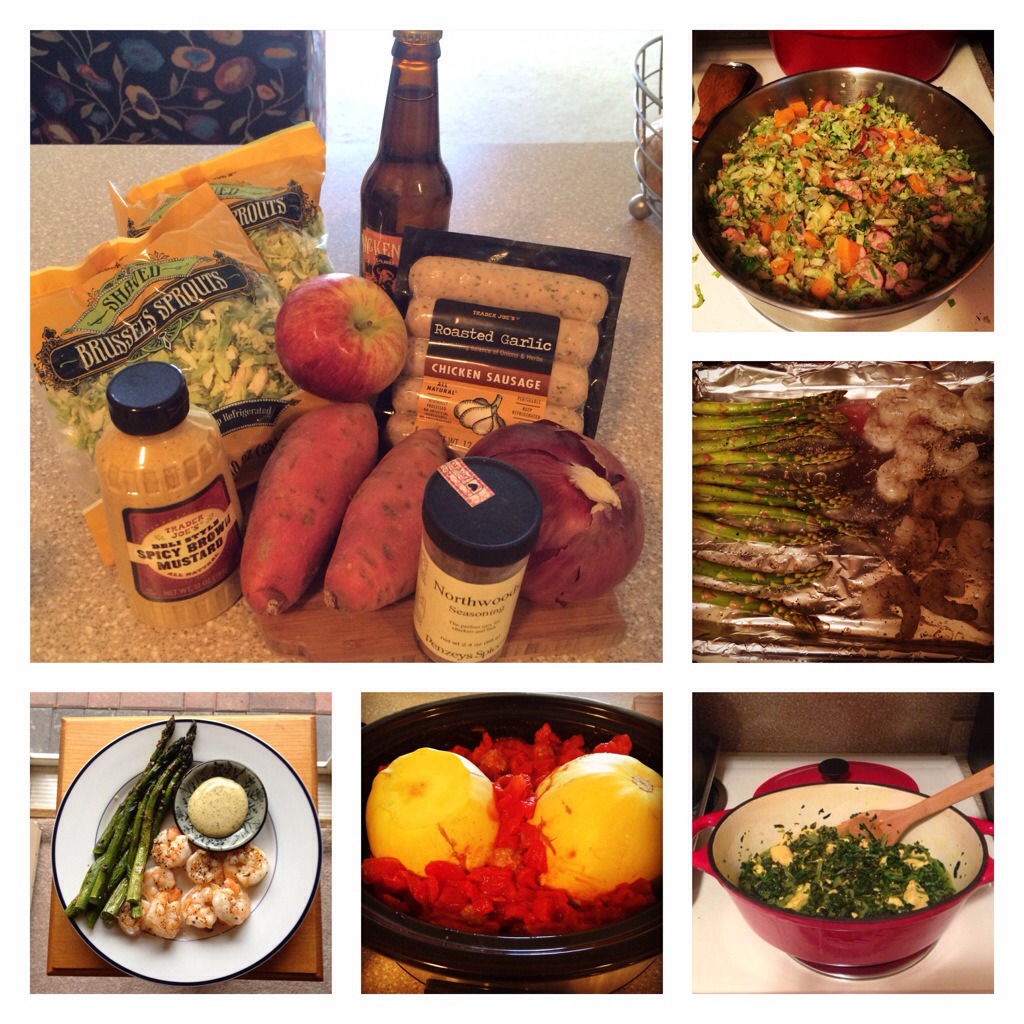The first Saturday of this month, I put everything on pause & sat down with a new book and the plan to just read the day away. Earlier in the week, I heard a radio show on NPR that was interviewing Ian Leslie about his new book: Curious: The Design to Know and Why Your Future Depends on It. The hour was a fascinating discussion about how curiosity shapes our lives and it really resonated with me. Within an hour, I had ordered the book and looked forward to diving into it. Saturday started off gray and rainy – perfect for a reading day. From the introduction to the book I was enthralled and by the time the book was finished later that day, I had scribbled 6 pages of notes and quotes from the book and the titles of several books to add to my unending reading list.
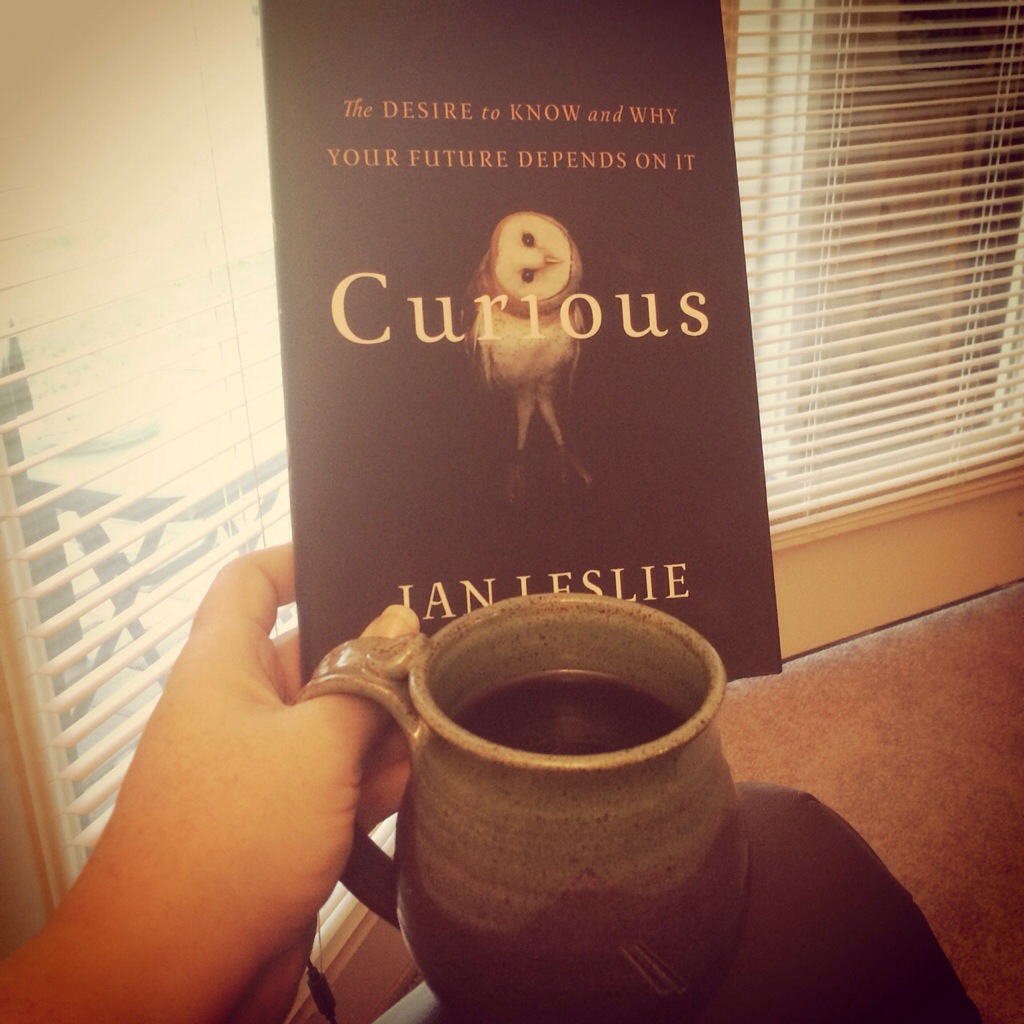
Settling in on a Saturday with a good book & good coffee…
As I read the book, it seemed to explain some of the “how & why” of me…I have always been a collector of “random” knowledge…someone to connect dots between seemingly disparate things…a lover of trivia. Jeopardy has long been a favorite game show – Trivial Pursuit a favorite board game – the networked trivia screens at Buffalo Wild Wings a fun diversion. As a child, I devoured the “Value Tales” story collection – many school projects/reports later on were inspired by the stories in those books and even today when I hear about some of the people who filled the books, I’m taken back to knowledge bits I learned in those stories. I’ve never lost a love of reading – and my reading list is normally pretty eclectic and filled with many new topics and facts to discover. A week doesn’t go by that I don’t follow-up on something I heard on NPR on my commute. My curiosity continues…seeking out “adventures” and unknowns/unexpected discoveries in travel…collecting notes and facts in paper & virtual notebooks…
The book compiles a lot of research and thoughts on curiosity and presents it in a very readable manner – the importance of curiosity being encouraged as a child; the Need for Cognition (NFC) as a measure of intellectual curiosity; the types of curiosity – epistemic (deeper, more disciplined and effortful curiosity) and emphatic (curiosity about the thoughts and feelings of others); how the instant access to information online may actually limit our curiosity (here, an article from him on the topic); how curious adults can help to achieve innovation within an organization; the concept of a “foxhog” – a hybrid of the fox who knows many things and the hedgehog who knows one big thing; and so many more interesting facts that tell the story of how this curiosity shapes us.
Like all good books (in my opinion), there were several nuggets of new knowledge to tuck away…maybe for a round of trivia…
- I don’t believe that I knew that a favorite word, serendipity, came from the Persian Fairy Tale: The Three Princes of Serendip…as Horace Walpole wrote, they were “…always making discoveries, by accident and sagacity, of things they were not in quest of…” Indeed, I have been researching since reading this book – next, to read the fairy tale. Growing up, our family had many a Serendipity Saturday – plans were unknown but we knew fun would be discovered.
- Curiosity cabinets – who knew that curio cabinets of today trace back to curiosity of years gone by? “The curiosity was a way of saying “Look – scientific know-how, refined cultural tastes, technological expertise, and a witty sensibility – I contain all this.”
This book has stayed with me since I closed the cover on it that Saturday evening. A friend at work had heard the same radio show & found the topic interesting so we have talked about it. I’ve mentioned the book to several other friends. I actually think I’ll be giving copies to several dear ones to read and enjoy. I’ll continue to ‘bug my kids in TX and WI‘ with questions of “did you know…” and seek out more info about things that engage them.
Among my favorite passages that I keep coming back to:
“A serendipity deficit make innovation harder, because innovation relies on unexpected collisions of knowledge and ideas.”
“Whoever you are and whatever start you get in life, knowing stuff makes the world more abundant with possibility and gleams of light more likely to illuminate the darkness. It opens the universe a little.”
“There is one [step] on which I would place greater emphasis – the store of general materials in the idea-producer’s reservoir – …[T]he principle of constantly expanding your experience, both personally and vicariously, does matter tremendously in any idea-producing job.” – James Webb Young
“When you live somewhere boring – and we all live somewhere boring – then we have a choice about the way we will see that place. We can spend our days thinking like everyone else, seeing the same thing over and over, and never once wondering about how they got that way, or why stayed that way, or how they could be better. Or, we can learn. And if we make the choice to learn, and to be curious about the things around us, then we are essentially making the choice never to be bored again. – Laura McInerney
The author closes the book with this call to action – a choice that we each can make as we travel through our days.
“…we have a choice. We can decide to explore the worlds of knowledge that present themselves to us. Or…we can turn our face from the beauty and mystery and make for the next appointment.”
What choice do you make? What keeps your curious?
How has your curiosity helped you recently?
